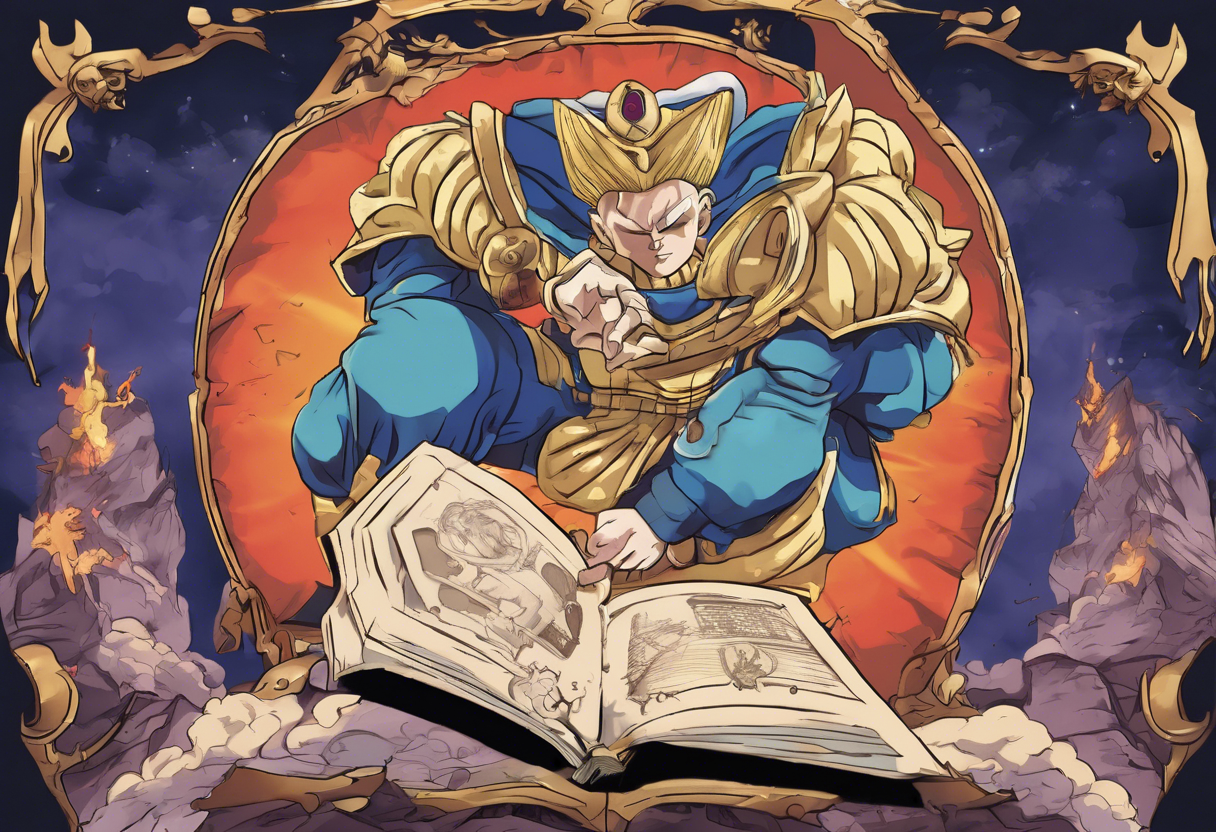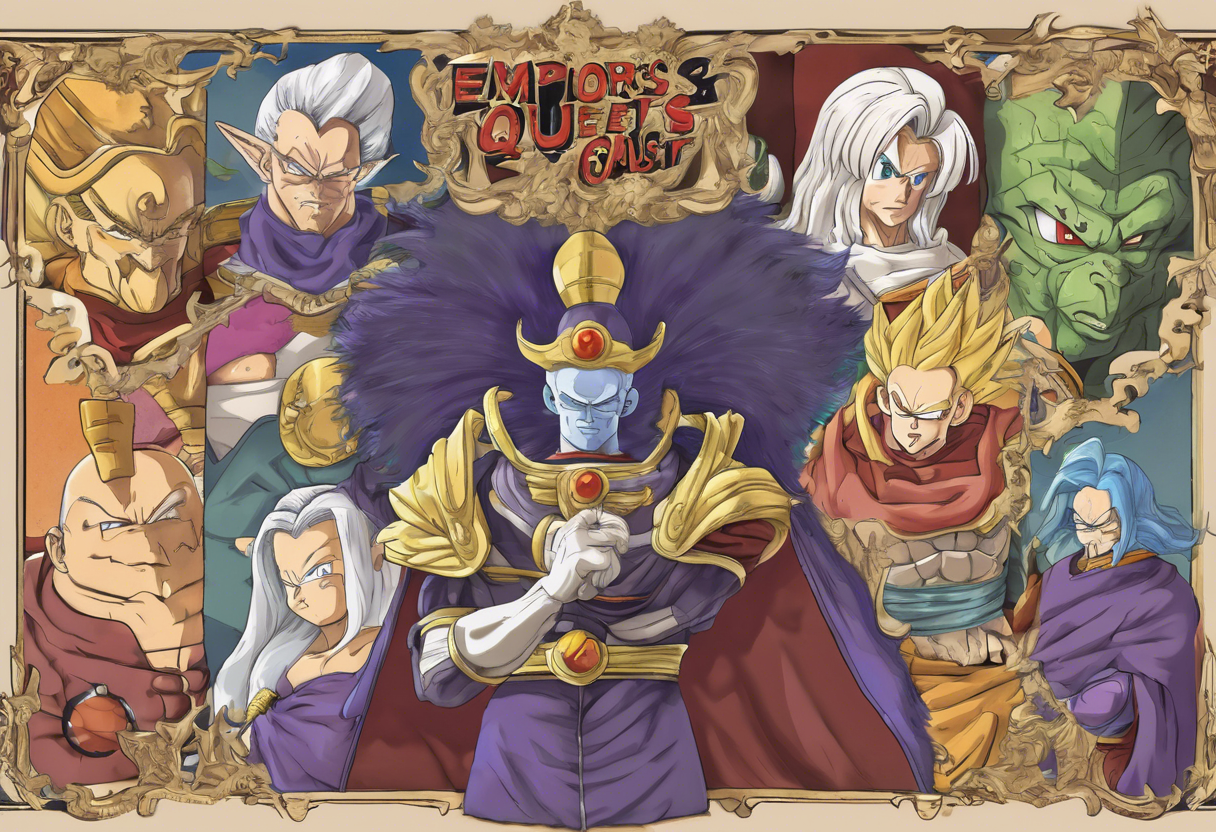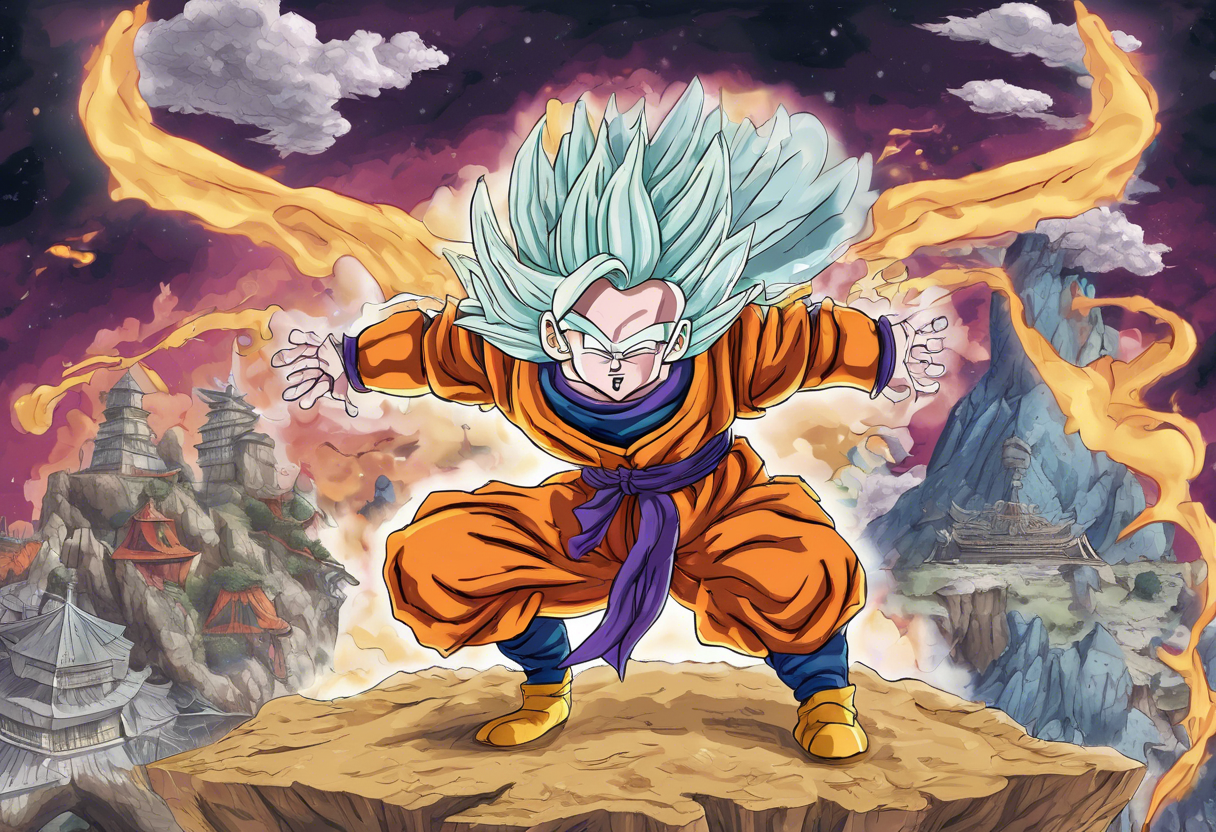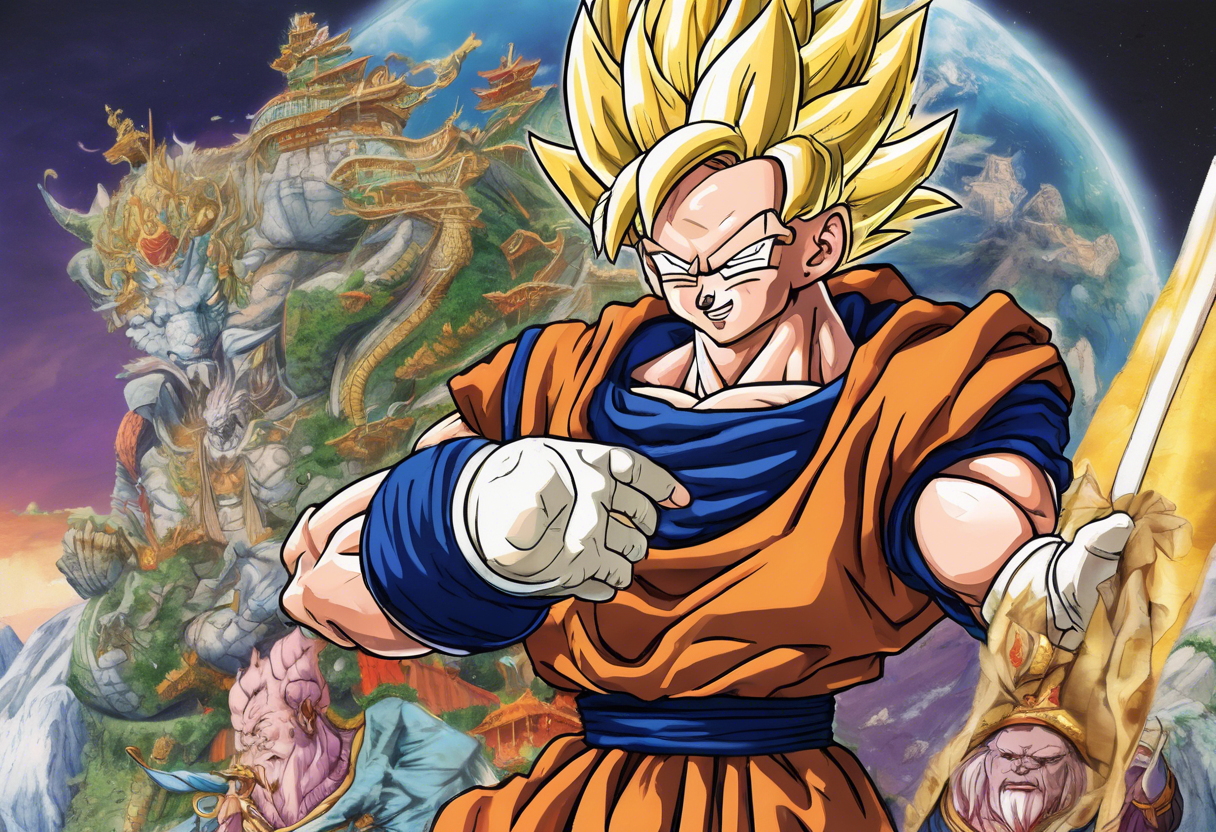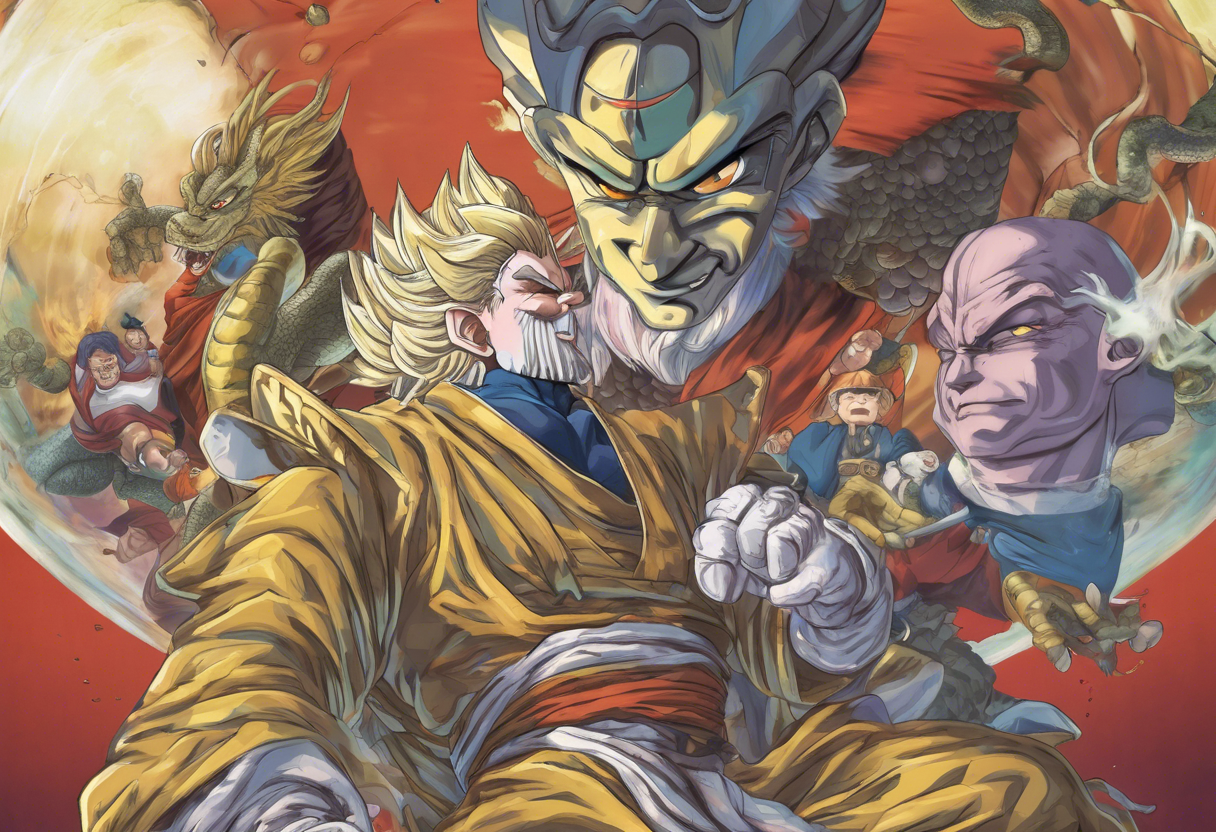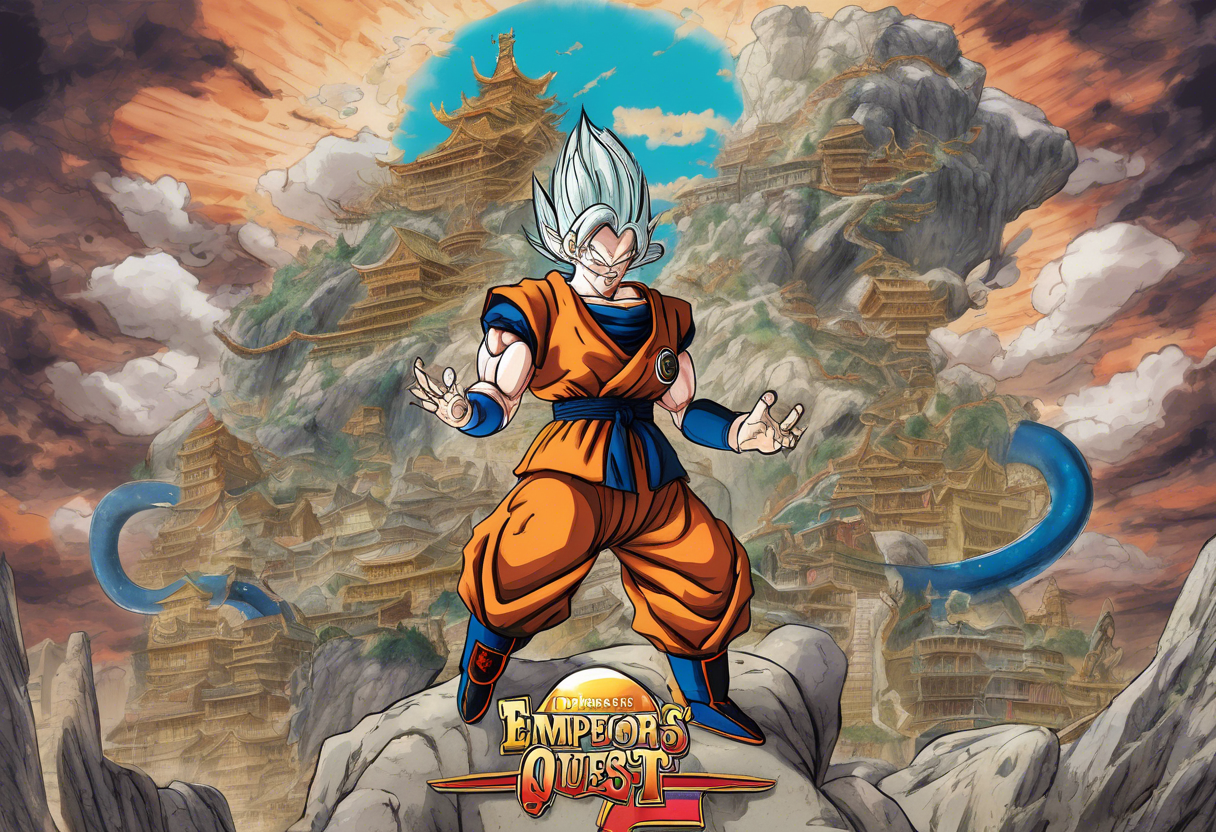Contents
The Emperor’s Quest: A Detailed Analysis of the Dragon Ball Episode
Introduction
"The Emperor’s Quest" is the second episode of the iconic anime series "Dragon Ball," which first aired in 1995 as part of the dubbed series released in Western markets. This episode is a pivotal part of the early narrative, setting the stage for the adventures of Son Goku and his companions. The original Japanese series, created by Akira Toriyama, was adapted and produced by Toei Animation, with Daisuke Nishio serving as the director and Takao Koyama as the writer for this particular episode.
"The Emperor’s Quest" stands out within the anime genre for its blend of humor, adventure, and bizarre elements, which were hallmark characteristics of the "Dragon Ball" series. The episode’s production history reflects the meticulous attention to detail and the creative vision of its makers, who aimed to bring Toriyama’s manga to life in a way that would captivate audiences worldwide.
Plot Summary
In "The Emperor’s Quest," Son Goku and Bulma continue their quest to gather the seven Dragon Balls, which when collected, can summon the dragon Shenron and grant any wish. The episode begins with Goku and Bulma setting up camp and Goku learning the finer points of life from Bulma, such as setting up a shelter and bathing [1][2].
As they journey on, they encounter an odd reptile companion who joins them on their quest to help him reunite with his friends. This encounter introduces new characters and adds to the comedic and adventurous tone of the episode [3][4].
The main conflict arises when Emperor Pilaf, who is also after the Dragon Balls, attempts to use them to fulfill his wish for world conquest. However, his plans are thwarted by Oolong, who wishes for a pair of underpants, causing Shenron to disappear and the Dragon Balls to scatter across the earth again [5].
Goku, Yamcha, and Bulma find themselves in peril as they are chased by Mai, Shu, and a pack of guard dogs. They are eventually trapped in a room with a glass ceiling designed to heat up and kill them by morning. The group’s desperation and fear are heightened when Goku reveals a dark secret about his transformation into a giant monkey during full moons, which he believes is responsible for his grandfather Gohan’s death [5].
Themes and Symbolism
"The Emperor’s Quest" delves into several central themes that are characteristic of the "Dragon Ball" series. One of the primary themes is friendship and camaraderie, as Goku, Bulma, and their new companions work together to overcome obstacles and protect each other. This theme is symbolized through their shared struggles and the trust they build in each other.
Another significant theme is the struggle between good and evil, exemplified by the contrast between Goku’s pure-hearted nature and Emperor Pilaf’s selfish ambitions. This dichotomy highlights the moral lessons embedded within the series, teaching viewers about the importance of integrity and the consequences of greed.
The episode also explores the theme of transformation and identity, particularly through Goku’s fear of turning into a giant monkey. This transformation serves as a symbolic representation of the inner struggles and fears that characters face, adding a layer of depth to the narrative.
Cultural Impact
"The Emperor’s Quest" has had a notable cultural impact since its release. As part of the "Dragon Ball" series, it contributed to the global popularity of anime and manga, helping to introduce these mediums to a wider audience.
Upon its release, the episode was well-received for its unique blend of humor, action, and fantasy elements. It influenced popular culture by becoming a reference point in various other media, including films, TV shows, and even music. The character designs, story arcs, and themes from "Dragon Ball" have been referenced and parodied in numerous works, reflecting its significant cultural footprint.
Critical Reception
"The Emperor’s Quest" received positive reviews from both critics and audiences at the time of its release. Critics praised the episode for its engaging storyline, character development, and the balance between humor and action. The episode’s ability to blend different genres seamlessly was particularly noted, making it a standout in the anime genre.
In subsequent years, the episode has continued to be celebrated for its nostalgic value and its role in the broader "Dragon Ball" narrative. However, some critics have pointed out the episode’s pacing issues and the somewhat simplistic nature of the plot, which were common in early anime productions.
Despite these minor criticisms, "The Emperor’s Quest" remains a beloved episode among fans of the series, and its influence can be seen in many later anime productions.
Legacy
"The Emperor’s Quest" has left an enduring legacy in the world of anime and beyond. It continues to inspire filmmakers, artists, and audiences with its unique storytelling and memorable characters. The episode’s blend of adventure, humor, and fantasy has set a standard for many subsequent anime series.
The "Dragon Ball" series, including "The Emperor’s Quest," has become a cornerstone of anime history, influencing countless other works and contributing to the global popularity of Japanese animation. The episode’s themes of friendship, good vs. evil, and self-discovery continue to resonate with audiences, making it a timeless piece of anime.

